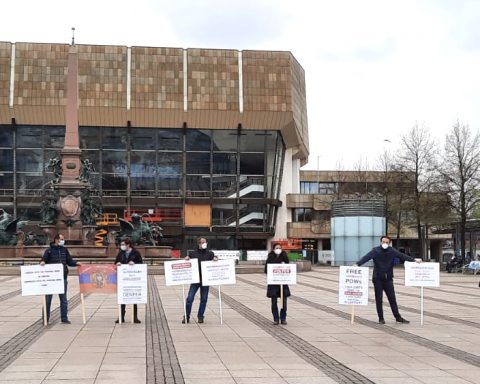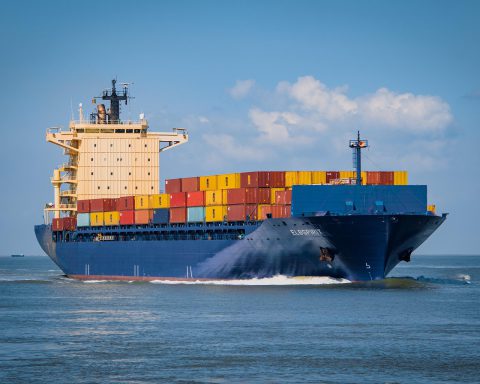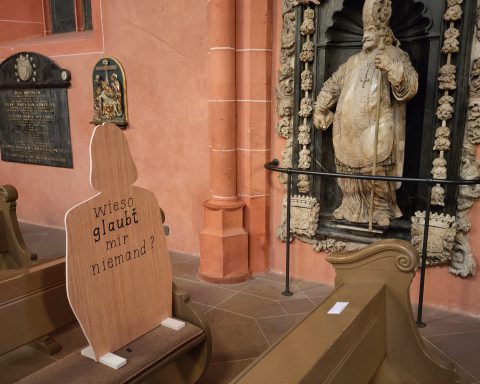On 2 October, Colombians went to the polls to cast their “yes” or “no” votes on a national referendum. Its purpose was to consolidate the peace agreement reached a couple months ago between the Colombian government and the Farc, the country’s largest armed rebel group.
The agreement took four years to churn out between negotiators of each party, and it would have settled a five-decade long civil war. However, the people of Colombia said “no” by a very narrow margin of less than half a percentage point.
This result prompts the question: What now? To answer this, one has to look at how and why the vote transpired. This would tell us some of the consequences of this historic vote.

Referendum polls got it wrong
The electoral system has become the cornerstone of democratic systems. With this, polls take center stage in showing how an election might turn out. This tends to affect voters’ decisions on not only for whom (or for what in this case), to vote, but also if it’s worth it to vote at all.
In the weeks running up to Sunday’s referendum, polls showed a clear advantage for the “yes” camp – about 60% of support for this option. But oops! They were wrong beyond any acceptable margin of error (about a 2-5% margin of error is generally acceptable depending on the construction or type of poll).
Perhaps the clear lead that the “yes” camp had in the polls affected many “on the fence” voters’ decision of whether to go vote (and there were many). After all, voter turnout was a ridiculous 38% for what was one of the most profound elections in Colombia’s long democratic history. They might have felt that making a difficult decision was not worth it, considering that the election had been called already in favor of approving the deal.
Deep geographical divides
The vote also shows a clear geographical divide between Colombian regions. The capital Bogota and the coastal regions voted overwhelmingly in favor of the agreement. On the other hand, voting against the deal were the interior of the country, such as Antioquia – a highly economically productive region and the political stronghold of Alvaro Uribe, the predecessor and main rival to Colombia’s current president, Juan Manuel Santos – and southeastern regions that have been heavily affected by the conflict.
That geographical divides play an important role is true in most countries. But in Colombia, particularly, geography is one the main reasons why the armed conflict lasted so long.
This is a very mountainous country with thick tropical forests. This allows the production of the world’s best coffee, but also for the perfect hiding place for guerrilla forces. The reason is that it is very difficult to run counter-insurgency operations in places that are difficult to reach with conventional armies. America lost the Vietnam war in great part for a similar reason.

Impunity is unpopular
The “no” camp argued against the peace agreement on several counts. However, the main sticking point was the question of impunity. The deal provided a “truth for jail” clause for Farc soldiers and leaders in new transitional courts of justice created by the agreement.
This meant that Farc members who confessed to their crimes, and explained what they did in an attempt to identify victims of the conflict, would get suspended sentences (no jail time) and it would not invalidate their political participation. Also, the Farc would be guaranteed at least 10 seats in the Colombian Congress for the next two parliamentary elections.
Many Colombians saw this as unacceptable impunity. In fact, many who supported the “yes” vote, in order to put an end to the costly civil war, were not happy with this part of the agreement. However, getting a deal through would have been difficult without some kind of amnesty.
How do you tell someone up in arms to put the guns down in order to go to jail for several decades?
Amnesties always carry some level of impunity with them. However, they are often the only way of putting an end to an armed conflict. This does not make them any less unpopular, and last Sunday, just over half of voters got their message across.
Up in arms once again?
The question for Colombians and international observers is whether the failure of the referendum will spark renewed conflict. Both sides publicly claimed after results of the vote came in that the permanent bilateral ceasefire remains in effect.
President Santos, the one who started the peace talks four years ago, said that his government remains committed to seeking a final peace agreement. The Farc has said that they will pursue becoming a non-armed political party despite the negative referendum results.
There are two problems, however. One is practical, the other one is legal. The practical problem is that the Farc have not given up their weapons. There is a bilateral ceasefire in place, but the agreement states that demilitarization and demobilization by the Farc would come after the deal was approved by the Colombian people. This did not take place.
Hence, there is the possibility that the Farc, or more likely one of their divisions, gets second thoughts on the viability of the agreement and engages with government security forces or in other illegal activities. Thus, they would derail any renegotiation of the agreement that could take place.
The legal problem is that President Santos used the referendum as a way of covering the peace agreement with democratic legitimacy, but also as a way of sidestepping Congress in order to turn the agreement into law. (Colombia’s constitutional court in a judicial review found that the referendum would be a legally viable way of making the agreement a national law.)
The agreement must become law in order for many of the clauses to be implemented. One of them is the above mentioned transitional courts of justice. If they are not implemented then the pending cases and arrest warrants against most the Farc leadership and some of their soldiers would still go through in ordinary courts. This is why the Farc leadership stayed the whole four years in Havana, Cuba, which is where most of the negotiations took place.

One possible solution, however, is that President Santos will go to the Colombian Congress in order to get the peace agreement made into law by the legislative branch. The reason why the present did not seek this route in the first place is because Congress is not likely to approve the agreement without making some changes to it, such as with the amnesty clauses. Hence, significant changes to the deal can cause the Farc, or some parts of it, not to honor the critical part of giving up their weapons and thus demobilize.
Obama’s loss
Santos wasn’t the only president crying himself to sleep Sunday night. This is a big blow to Obama’s foreign policy legacy. It would have been none other than helping end the last two remaining Cold War conflicts in the western hemisphere: The U.S. isolation of Cuba, and the demobilization of the Farc, the last major remnant of Soviet-inspired armed revolutionary conflict.
American support for the Colombian government in the past decades has prevented major grains by the rebel group, but it did allow for the hope of a lasting settlement of the conflict. The Obama administration stopped all major anti-drug operations in Colombia to help their government negotiate the peace agreement.
With the major setback delivered by the referendum, Obama’s goal of ending these two remnants of the Cold War might not be fulfilled before his term is up. Also, a more aggressive stance by a new administration in Washington D.C. (particularly Trump) might derail any possibilities of renegotiating the peace agreement.
If Trump winds up winning in November, President Santos’s pillow will turn yellow from all the crying at night…










